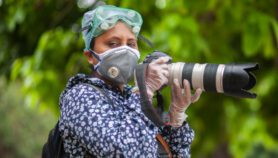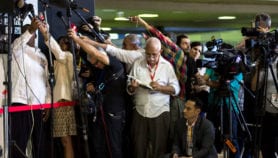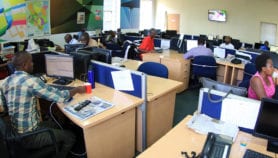By: Hepeng Jia
Send to a friend
The details you provide on this page will not be used to send unsolicited email, and will not be sold to a 3rd party. See privacy policy.
[BEIJING] Leading Chinese journalists have called for dedicated science coverage, as their field is increasingly marginalised by market-oriented media reforms.
The Chinese Society of Science and Technology Journalism (CSSTJ) intends to petition China’s official media watchdog, the Central Publicity Department (CPD) about the situation.
Speaking at a CSSTJ seminar in Beijing (12 January), Li Bin, a senior science journalist at China’s state Xinhua news agency, appealed for "minimum science reporting amounts for mass media."
Xu Xiuhua, science editor of the People’s Daily Online called for 20 per cent of all media coverage — equivalent to science’s contribution to the Chinese economy — for science reporting.
Late last year, the CPD and the China Association for Science and Technology, encouraged media to report more science (see China encourages media to report more on science).
But a study conducted by Wang Xuefeng, deputy editor-in-chief of Beijing newspaper The First, revealed increased marginalisation instead.
Based on 14 national and local newspapers in Beijing over six months, science accounted for just three per cent of articles.
Wang said science stories were small and many articles praised individual scientists or institutions rather than the science itself.
He singled out official media, often subsidised by the government, for replacing their science columns with advertising-friendly automobile or property pages. The People’s Daily replaced its science page with culture reporting in 2005. China Daily revoked its weekly science and health pages, despite growing from 16 to 24 pages in 2007.
Cai Wanlin, a senior science reporter at China National Radio, said official media, with less pressure to earn a profit, should shoulder the responsibility of popularising science.
SciDev.Net Beijing contributor Jane Wu has been recognised by the American Association for the Advancement of Science (AAAS) and EurekAlert! with one of six 2007 fellowships for science reporters in developing regions. Wu, a reporter for China Daily, will attend the AAAS annual meeting in San Francisco next month. William Chang, of the US National Science Foundation’s Beijing office and one of the judges, said open and unbiased news reporting was on the rise in China, but added that there was still "great room for further improvement".













